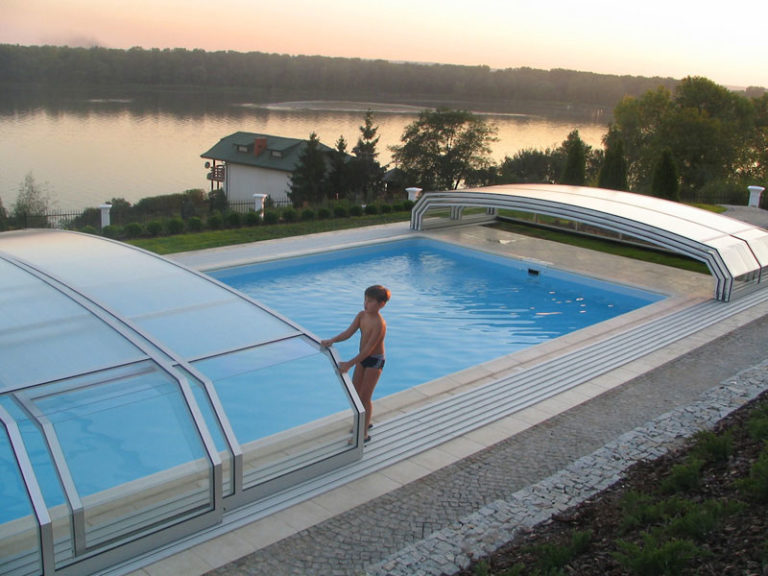
March 22, 2017
After a summer of swimming fun, a pool closing is necessary in order to keep your pool protected and ready for the next swimming season. Regardless of the reason in which you are planning to close your pool there are a few rules that you should follow to ensure that you are doing ti properly.
Pool Closing For the Season
When preparing for a pool closing for the season you will need to choose the right chemical balance to prevent the water from being corrosive or producing large amounts of calcium deposits, especially during the colder calendar months. You can quickly start the pool closing process by using a pool test kit to check for various water balance tests including the pH level which should be approximately 7.2 – 7.6. If the number that you are getting is below that you should add pH increaser but if the levels are above that then you would need to add pH decreaser. Wait at least one hour before continuing your tests after adding the correct pH.
The next test that you will want to do is the calcium test which should be between 175 to 225 ppm for all pool types. In order to increase the level you can use a calcium hardness increaser or to decrease the levels simply drain some of the water out and refill with a water source that has a lower calcium level.
Other levels that you will want to check are the alkalinity and the chlorine levels. The alkalinity level should be between 80-125 ppm for plaster pools and 125-150 ppm for other pool types. To lower the level you would simply add a pH decreaser and a pH increaser to increase the levels. The chlorine helps to kill bacteria and prevent viruses so make sure to adjust the level accordingly which should be 1 to 4 ppm and a stabilizer of 30 ppm.
Cleaning & Storing the Equipment for a Pool Closing
When preparing for a pool closing you will need to properly clean and store equipment once the levels are completed. You should first remove, clean and store all diving boards, accessories and ladders for the season. You will then need to properly clean the pool walls and floor with a pool brush. You can easily remove any debris by using a pool skimmer. Cleaning the pool filtration system is also very important and should be handled with care in order to ensure your pool closing is done properly.
The pool closing is important because if the steps are not followed properly it could mean disaster for the pool and for your wallet. Ensure that everything is properly stored and cleaned before the final step which is using a durable pool cover to keep things protected year round. By properly cleaning and storing your pool this will help to save you time and money once you are ready to reopen the pool.
